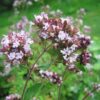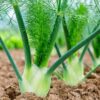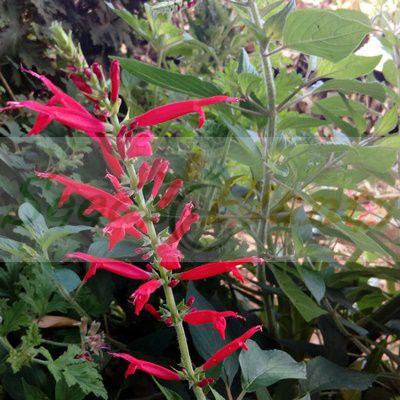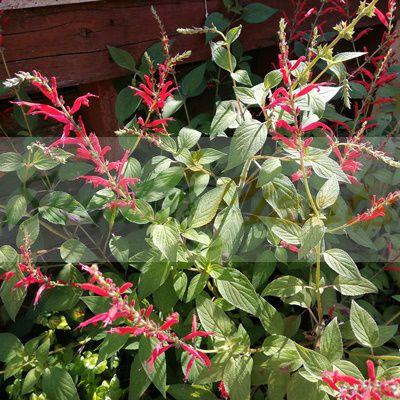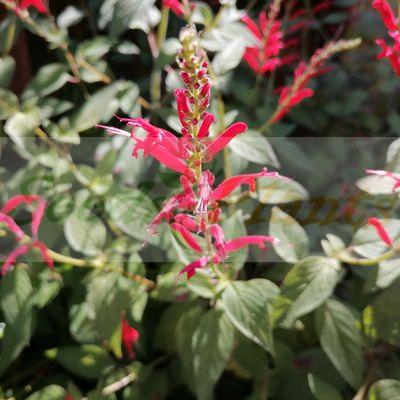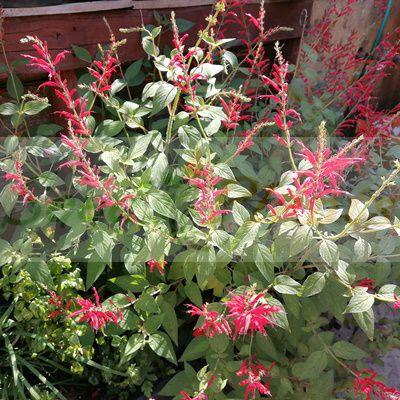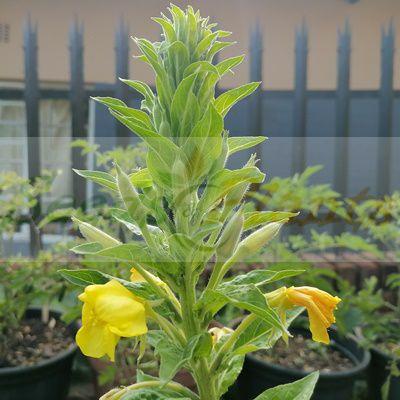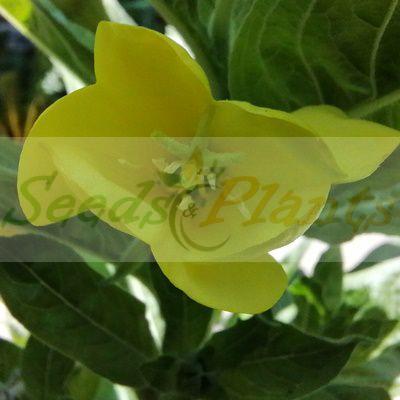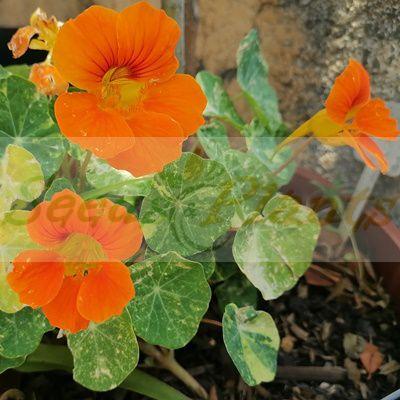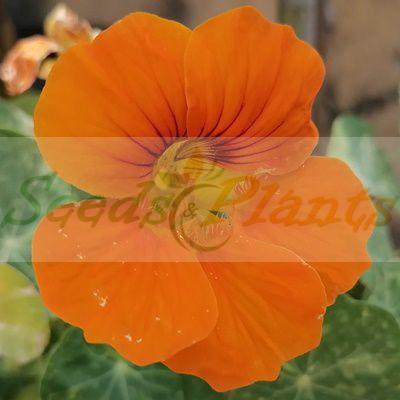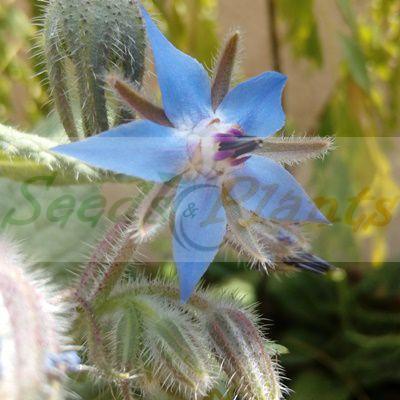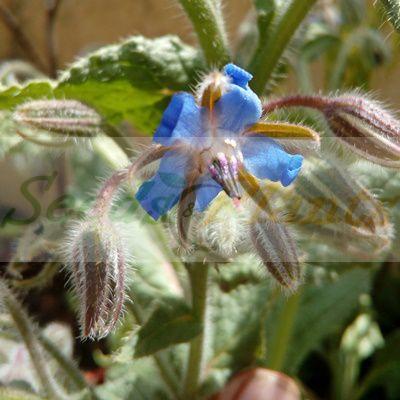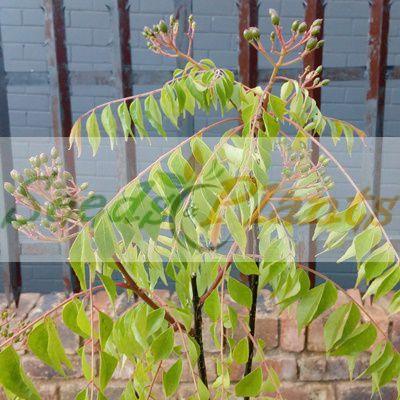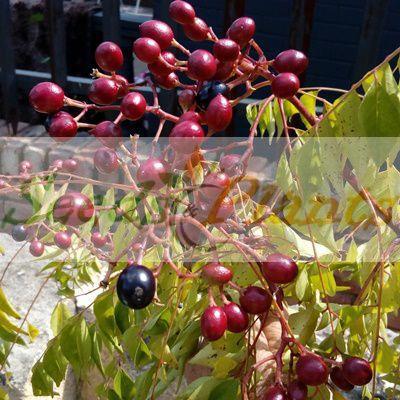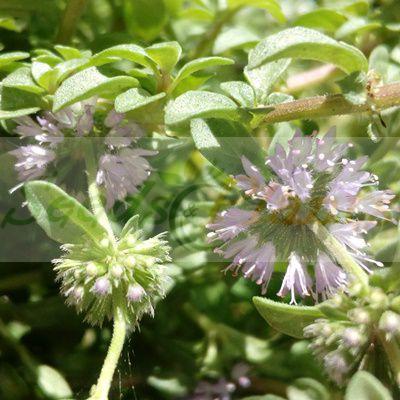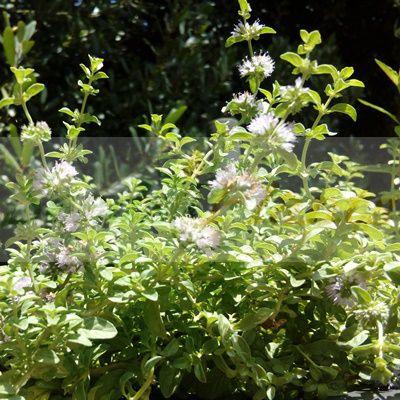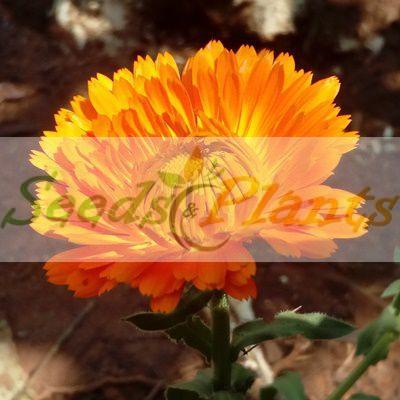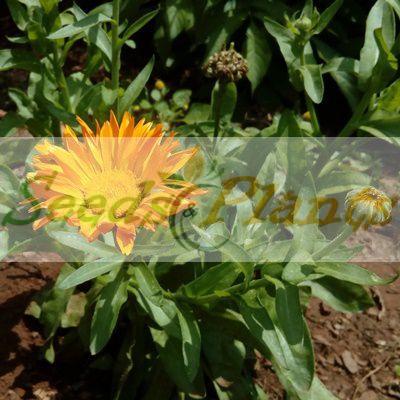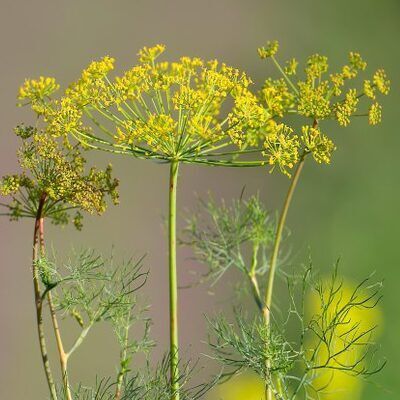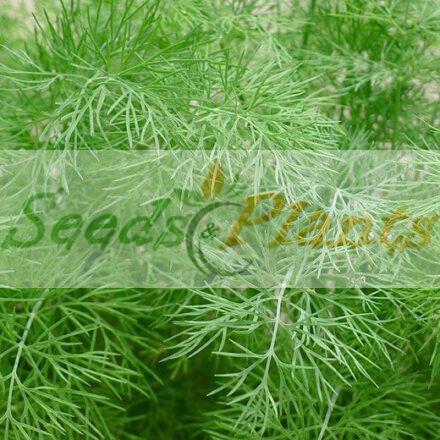🍃 Culinary Quick Facts
Culinary Info
- 🌍 Origin / Region: Guatemala, Mexico
- 🍽️ Culinary Use: Beverages/Teas, Desserts, Flavoring, Garnish, Marinades/Dressings, Salads, Stuffing
- 🥗 Edible Part: Leaf
- 😋 Flavor Profile: Pineapple-like, Sage-like
Growth Traits
- 🌱 Life Cycle: Perennial
- 🌾 Plant Type: Shrub
- 🦋 Pollinator Method: Attracts Bees, Attracts Butterflies, Attracts Hummingbirds
- 🪴 Growth Habit: Bushy, Clumping, Sprawling, Upright
- 🌸 Flower Color: Red
Growing Requirements
- 🌞 Sun Exposure: Full Sun, Partial Shade
- 💧 Water Needs: Avoid Overwatering, Regular Water, Water Deeply
- ☀️ Growing Conditions: Frost Sensitive, Heat Tolerant, Moderate Cold Tolerance, Not Drought Tolerant
- 🟤 Soil Preference: Chalky, Humus-rich, Loam, Moderately Fertile, Sandy, Well-Drained
Pineapple Sage – 10 Seeds
(Salvia elegans)
R30.00
This Perennial Sage is native to Mexico and Guatemala. The leaves have a distinct Pineapple aroma, hence the name.
Common Names: Pynappelsalie, Pineapple sage and Tangerine sage.
Seed Type: Organic – Harvested from our own plants.
Indoor Sowing: Late Winter and Early Spring.
Direct Sowing: Spring.
Out of Stock
Email me when the product is back in stock.
🍃 Culinary Quick Facts
Culinary Info
- 🌍 Origin / Region: Guatemala, Mexico
- 🍽️ Culinary Use: Beverages/Teas, Desserts, Flavoring, Garnish, Marinades/Dressings, Salads, Stuffing
- 🥗 Edible Part: Leaf
- 😋 Flavor Profile: Pineapple-like, Sage-like
Growth Traits
- 🌱 Life Cycle: Perennial
- 🌾 Plant Type: Shrub
- 🦋 Pollinator Method: Attracts Bees, Attracts Butterflies, Attracts Hummingbirds
- 🪴 Growth Habit: Bushy, Clumping, Sprawling, Upright
- 🌸 Flower Color: Red
Growing Requirements
- 🌞 Sun Exposure: Full Sun, Partial Shade
- 💧 Water Needs: Avoid Overwatering, Regular Water, Water Deeply
- ☀️ Growing Conditions: Frost Sensitive, Heat Tolerant, Moderate Cold Tolerance, Not Drought Tolerant
- 🟤 Soil Preference: Chalky, Humus-rich, Loam, Moderately Fertile, Sandy, Well-Drained
Pineapple Sage (Salvia elegans) is native to Mexico and Guatemala and was introduced as an ornamental garden plant around 1870. It is an herbaceous perennial with scarlet red flowers, growing 1.2 to 1.5m. The leaves have a distinct Pineapple aroma, hence the name. The leaves remain scented all year and crushing them releases the best scent.
Pineapple sage develops a dense, rounded form and produces numerous leafy, erect stems and lateral branches that hold the striking red, flower spikes, which attracts butterflies and hummingbirds. As the season progresses the stem becomes woody and the roots extend deeper underground forming a large clump. It is an evergreen. In areas that experience frost, the plant may lose its leaves or die back to the ground during winter, but will bounce back again in Spring.
Common Names: Pynappelsalie, Pineapple sage and Tangerine sage.
Culinary Uses
- The leaves and flowers are both edible and may be used as part of salads or as garnishes.
- They are a nice addition to fruit salads as the crushed leaves will impart a pineapple aroma.
- They can also be used in cold soups, to garnish cool drinks and iced or herbal teas.
Growing Pineapple Sage
Indoor Sowing: Late Winter and Early Spring.
Direct Sowing: Spring.
- Pineapple sage thrives in full sun to partial shade.
- It requires regular watering, as it is not drought tolerant.
- For direct sowing, make sure the soil is well-draining and amended with compost or organic matter.
- For indoor sowing, use a well-draining mix of potting soil, coarse sand and perlite.
- Surface sow seeds and cover with a thin layer of fine soil.
- Firm soil and keep moist.
- Germination in about 21 days.
- Thin to 40cm apart when seedlings have two or three pairs of leaves.
- Grows well in containers.
Can this plant be used for culinary purposes?
Pineapple Sage is traditionally used for culinary purposes such as beverages/teas and desserts.
Disclaimer
Medicinal Information:
All medicinal information on this website is for educational and informational purposes only and may not be construed as medical advice. The information is not intended to replace medical advice or treatment offered by healthcare professionals.
Seeds, Plants, Plant Cuttings, Geophytes and Dried Herbs:
In some countries and provinces, certain plants are deemed as invasive and are not allowed to be planted at all, whilst some plants are allowed to be grown only in certain areas or provinces. The onus is on you as the buyer to familiarize yourself with the regulations pertaining to your location, before purchasing any of our seeds, plants, plant cuttings, geophytes or dried herbs. We will not be held liable, should you purchase any seeds, plants, plant cuttings, geophytes or dried herbs. from us which are prohibited in your country or province.

